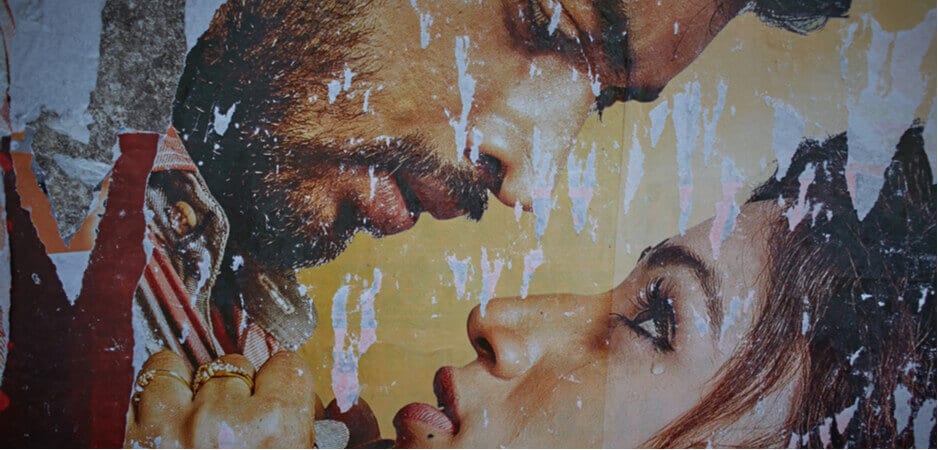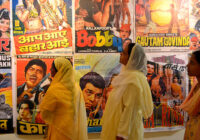A dismissed case of sexual harassment in Bollywood shows just how behind India is in its journey toward gender equality.
The past days have seen a whirlwind of accusations and emotions surrounding the #MeToo movement in India that are truly representative of the abysmal state of women’s rights in the country. On June 13, a sexual harassment case was closed by the police under the pretext of a lack of evidence, becoming the “first official #MeToo case that has reportedly collapsed.” The case, filed by actress Tanushree Dutta against actor and film writer Nana Patekar for harassing her during a film shoot, is now being deemed as having been given a “clean chit.”
Dutta immediately responded that she intends to challenge the decision as well as alleging that the case was closed in a hurry before all witnesses had had the opportunity to testify; she also accused the police of witness intimidation.
The conviction rate for crimes against women is just 19%, as compared to an average 47% conviction rate for all crimes — a regrettable statistic that clearly contests the idea that the police decision in this case was either reliable or unbiased. Yet many decided to ignore Dutta’s challenge and jumped to conclusions about the actress being “malicious,” and deemed Patekar deserving compensation for all the “humiliation” he faced. The response to the “clean chit” and to Dutta’s reaction has been disheartening, to say the least, and gives several indications as to just how far behind India is in its journey toward gender equality.
Just hours after the case was closed, film producer Mukesh Tyagi came on national television as part of a panel to discuss the police decision. The panel consisted of Tyagi and four women, all four having some expertise in or experience with issues surrounding sexual harassment. In what can only be seen as the epitome of India’s patriarchal tendencies, Tyagi had the audacity to drop misogynistic remarks, including terming certain sexual harassment allegations as “frivolous” and insinuating that Dutta was responsible of “castigating evidence.”
Ira Trivedi, an author who had previously filed a complaint against sexual harassment, spoke about her experience of being an accuser. She argued as to why the negative energy surrounding sexual harassment accusations and the inefficient handling of complaints by the police makes it extremely unlikely for women in India to make false allegations. Tyagi’s response to this, and to the statements made by other panelists, was that despite feeling “the power of the matriarchy,” he believed that the #MeToo movement was wrong to “hijack” the system, and that fake accusers deserved to be punished. This dismissive attitude, where sexual harassment and gender equality are viewed as a “matriarchal” issues rather than a human one, is emblematic of inherent sexism in India’s society.
Feminist Challenge
This interaction brings to light the context in which Indian women are fighting against sexual harassment and other forms of misogyny. The little trust put in the women who have the courage to step forward, and the readiness to deem an accusation as fake, point to the insecurity among men in India who feel their dominant position being challenged by feminist movements. There is resistance to investigating or punishing alleged sexual harassers, especially celebrities, and yet there is an unbounded enthusiasm to take strict action against any woman who makes so-called fake accusations. The very fact the a man in India is able to come out in public and make sexist, insensitive statements in the face of clear injustice against women shows the power that men hold in society.
TIMES NOW EXCLUSIVE: I was very shocked and thought of it as another false report. I am disappointed: Tanushree Dutta, Actress | #MeToo pic.twitter.com/UbgCPD6ZZG
— TIMES NOW (@TimesNow) June 13, 2019
Tyagi’s audacity paid off, for there was little public outcry at his statements on social media, nor was he visibly condemned or called out by any public figures other than the women on the panel. The fact that Tyagi felt no remorse for his comments that were met with less backlash than Dutta’s accusations against Patekar is truly shameful. Not only does this show the derisory attitude of Indian society to feminist causes such as the #MeToo movement, but it serves as a frightful reminder of what influence men still enjoy in India. Epithets like “frivolous” thrown around on national television in conjunction with #MeToo exhibit a dangerous, long-standing practice of deriding and trivializing female achievements while sensationalizing their “flaws.”
Former Bollywood actress Pooja Bedi also reacted in a disappointing manner, putting complete confidence in the actions of the police and calling for strict punishment for women who are responsible for false accusations. Her attitude symbolizes that of hundreds of Bollywood actors and actresses who Tanushree Dutta has called out as “hypocrites” for turning their backs on victims of sexual harassment. An example of this is the actor Alok Nath, who has been cast in films despite being accused of rape and inappropriate behavior toward women. Despite allegations, male celebrities like Nath and Patekar are not losing either face or popularity, while the women speaking up against them are blacklisted and shamed.
An equally horrific reaction to this event was displayed by the Indian public on platforms like Twitter. An important thing to note here is the unique nature of Bollywood, where not only are acting careers controlled by powerful film dynasties that don’t care much for feminism, but also one where actors like Nana Patekar are worshipped as heroes for their roles. This devout fan following is quick to defend celebrities from attacks, and contributes to the burden of proof in such cases being placed on the accuser rather than the harasser. In this case, the decision by the police to not charge Patekar was met with celebration and relief amongst his fans, which quickly turned into a rage-filled denunciation of Tanushree Dutta, feminism and the #MeToo movement.
There were numerous tweets sympathizing with Patekar, whose life was apparently “destroyed” by Dutta’s accusations. Ironically, people turned a blind eye to Dutta’s resolute defense of her allegations, instead insulting her “disgusting” character, as well as attacking her acting skills and her appearance — aspects of Nana Patekar’s image that were never questioned, even when allegations against him where pending. Some called her a “fatso” and “harasser,” and her allegations a publicity stunt. The criticism of #MeToo and of feminists in general that followed showed the lack of seriousness with which women’s rights are regarded. Many headlines and discussions in the news surrounded the idea that the #MeToo movement has been “killed.” This rush to demonize feminists and be done with #MeToo is a clear manifestation of India’s unwillingness to change and an ingrained sexism that refuses to be challenged by logic or basic humanity.
Change in Consciousness
Besides the colorful display of India’s patriarchal mindset, this latest event has brought spotlight on a handful of courageous feminists, undeterred by all the backlash and hate that they receive on a daily basis for standing up against sexual harassment. In the face of frustratingly inefficient institutions that have denied them the justice that they deserve, women like Ira Trivedi and Tanushree Dutta, along with hundreds of others, have managed to power through. Yet these women will not be able to go far as long as the government and the public continue to turn a blind eye to gender inequality.
Bollywood is the one industry that has the power to influence millions of its dedicated viewers. As long as there remains a culture of tolerance toward actors accused of sexual harassment, people will continue to worship perpetrators of sexual violence and dismiss the #MeToo movement as frivolous and harassment allegations as false. While Hollywood is by no means perfect, Bollywood has much to learn from its reaction to the #MeToo phenomenon that tore open the culture of abuse in the film industry two years ago, including cancellations of shows and movies starring actors accused of sexual harassment.
The past few days have shown how little change there has really been in India’s attitude toward women’s rights. There is only so much of a change in consciousness that social media can induce, and it is now up to the government, its institutions and influential establishments such as the film industry to take forward what was successfully launched online and implement it offline for a lasting and effective shift toward equality. India needs to recognize that the primary need is for strict, efficient and transparent action to be taken against perpetrators of sexual harassment, not women who step forward to fight for their basic human rights.
The views expressed in this article are the author’s own and do not necessarily reflect Fair Observer’s editorial policy.
Support Fair Observer
We rely on your support for our independence, diversity and quality.
For more than 10 years, Fair Observer has been free, fair and independent. No billionaire owns us, no advertisers control us. We are a reader-supported nonprofit. Unlike many other publications, we keep our content free for readers regardless of where they live or whether they can afford to pay. We have no paywalls and no ads.
In the post-truth era of fake news, echo chambers and filter bubbles, we publish a plurality of perspectives from around the world. Anyone can publish with us, but everyone goes through a rigorous editorial process. So, you get fact-checked, well-reasoned content instead of noise.
We publish 2,500+ voices from 90+ countries. We also conduct education and training programs
on subjects ranging from digital media and journalism to writing and critical thinking. This
doesn’t come cheap. Servers, editors, trainers and web developers cost
money.
Please consider supporting us on a regular basis as a recurring donor or a
sustaining member.
Will you support FO’s journalism?
We rely on your support for our independence, diversity and quality.







